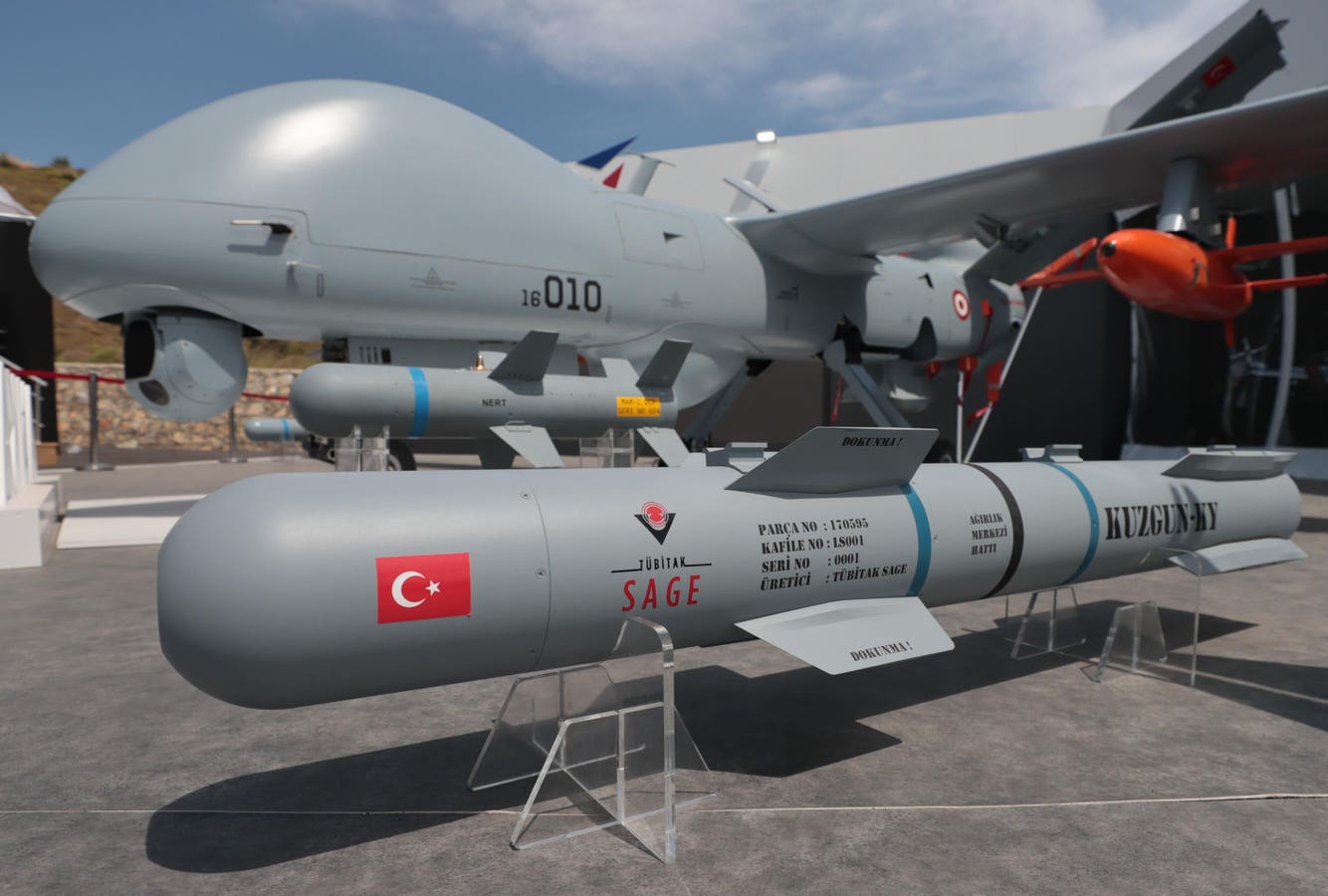In the space of a mere two years, Indonesia and Malaysia have both become noticeable importers of Turkey’s indigenous weapons systems, ordering advanced drones, anti-ship missiles, and even warships.
Marking Indonesia’s 79th Independence Day on Aug. 17, Turkish Defense Minister Yaser Guler expressed Ankara’s “hope to increase the number of joint training and exercises conducted by our armed forces.”
“Our main goal is to elevate our friendship and cooperation to a much stronger level in every field,” he said.
The Indonesian Air Force chief of staff met the Turkish Air Force commander in Ankara on July 1 to discuss collaboration on strengthening air defenses, among other things. In the preceding days, the Indonesian official visited facilities belonging to Baykar Technology, manufacturer of Turkey’s widely exported Bayraktar TB2 drone, and saw a flight demonstration of the company’s advanced Akinci unmanned combat aerial vehicle.
Defense ties between Turkey and Indonesia are undoubtedly burgeoning, with several orders made in the last two years alone.
The Indonesian Navy is interested in acquiring Bayraktar Akinci and Anka UCAVs, made by the state-owned Turkish Aerospace Industries, as part of an initiative announced in June. Baykar and TAI are also prepared to collaborate with Indonesia’s Dirgantara Indonesia aerospace firm.
Jakarta already ordered 12 Anka drones for its army, air force, and navy as part of a $300 million deal with TAI in 2023, expecting full delivery before November 2025.
Indonesia views Turkish systems as suitable for surveilling and defending its vast maritime borders. For example, the country’s defense ministry proposed arming its upcoming Red White frigates with Turkish missiles in June, revising a previous plan to import weapons from different suppliers for these warships.
The move comes after Indonesia decided to buy 45 indigenously developed Turkish Atmaca anti-ship guided missiles, making Jakarta the first export customer for that Turkish surface-to-surface missile. Turkey is building the Atmaca to replace its American-built AGM-84 Harpoons.
The land-based version of the missile, the Kara Atmaca, completed its longest-range flight test on Sunday, hitting a floating target with “pinpoint accuracy.” That missile has a purported range of 173 miles and a slightly heavier warhead than the naval version.
The Atmaca isn’t the only Turkish-developed missile Indonesia has become the first country to buy. Turkey’s missile manufacturer Roketsan signed a contract with Indonesia in November 2022 to supply the Khan short-range ballistic missile, the export version of Turkey’s Bora-1 SRBM, which will make Jakarta the first foreign operator of the Turkish SRBM.
Indonesia signed that contract alongside another contract for Turkey to develop a layered air defense system. There are fewer details publicly available about this latter contract. The July 1 meeting between the Indonesian Air Force chief of staff and the Turkish Air Force commander on air defense collaboration mentioned above most likely included discussions on this contract’s progress. Incidentally, Turkey announced its Steel Dome integrated multilayered national air defense system early this August, which will primarily, if not entirely, consist of indigenous surface-to-air missiles.
Throughout this same general period, Turkey has also inked some notable defense contracts with Indonesia’s western neighbor, Malaysia.
Defense Minister Guler visited Malaysia on Monday and met his Malaysian counterpart and the country’s prime minister. They unsurprisingly discussed bilateral defense cooperation.
Malaysia signed a contract in June for building three littoral mission ships for the Royal Malaysian Navy in Turkey. The contract “marks the first time Malaysia has signed a government-to-government agreement to procure defense equipment,” according to Defense News.
Turkey expects to begin building the warships this year and deliver them in under four years. The vessels will come equipped with Turkish sensors and Atmaca missiles.
Malaysia’s Dayatech Merin company also proposed acquiring Turkish Kuzgun anti-ship missiles for Malaysian navy corvettes and missile boats during the DSA 2024 defense exhibition in Kuala Lumpur in May.
Malaysia announced in May 2023 that it had signed a contract with TAI for three Anka drones to support air force and police operations as part of a contract valued at $91.6 million. A representative of Malaysia’s air force at DSA 2024 told Naval News that the production of drones and the training of Malaysian personnel to operate them are still on schedule a year later.
With so many projects underway, it’s clear that by the end of this decade, the armed forces of Indonesia and Malaysia will most likely have various Turkish-built systems deployed for surveilling and defending their respective airspaces and territorial waters.
Read the full article here





